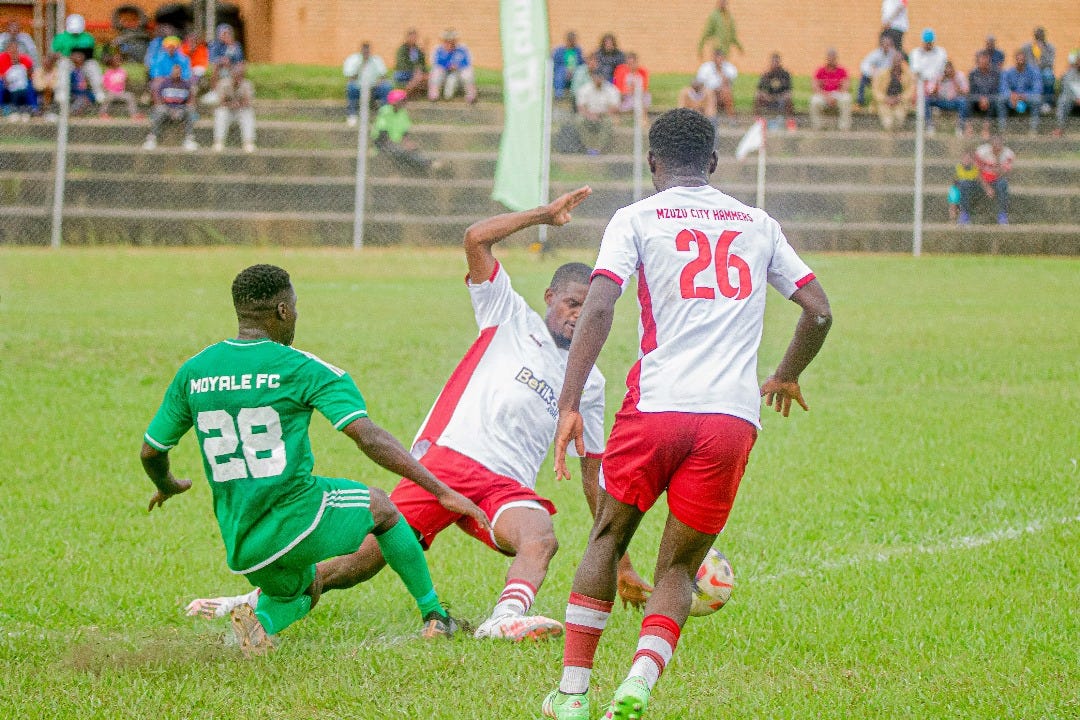Malawi Soccer Faces Crisis as Fans Desert Stadiums
The coming months will prove crucial in determining whether Malawi's beloved sport can recapture the hearts, and wallets, of its fans.

BLANTYRE, Malawi— On a sunny Saturday afternoon, Kamuzu Stadium in Blantyre — once a cauldron of noise and excitement — sits eerily quiet. Where thousands of passionate fans once cheered, only a smattering of die-hards occupy the bleachers. This scene, increasingly common across Malawi's soccer landscape, represents a growing crisis for the country's beloved sport, writes Joseph Chalera.
The TNM Super League, Malawi's premier soccer division, is grappling with plummeting attendance and shrinking gate revenues.
Recent matches have seen gross revenues as low as K28,000 — a far cry from the packed stadiums and financial windfalls of seasons past.
"It's disheartening," says Joseph Banda, a long-time fan of FCB Nyasa Big Bullets, traditionally the country's most popular team.
"I used to fight for a ticket. Now, I could have my pick of seats."
The reasons for this decline are multifaceted, according to industry insiders. Casper Jangale, former Football Association of Malawi Club Licensing and Compliance Manager, points to a fundamental problem: product quality.
"We need to ask ourselves: Are we selling a good product to the fans?" Jangale said in a recent interview.
"Do we have quality coaches and players who can convince fans to start patronizing stadiums?"
Jangale's concerns are echoed by Kevin Moyo, a prominent soccer analyst and marketer. Moyo attributes the downturn to underwhelming performances by the league's traditional powerhouses.
"Big teams aren't doing well this season, hence the slump in gate revenues," Moyo explained.
"For example, last season Bullets did well, making fans patronize more games. Unlike this season, where the team is struggling, making fans start shunning them."
The impact of this decline extends beyond just empty seats. Malawian clubs, operating on shoestring budgets, rely heavily on match-day income to cover basic expenses like player salaries and travel costs.
As revenues dwindle, the financial stability of these teams hangs in the balance.
Twaha Chimuka, another respected analyst, highlights a worrying trend: smaller clubs' dependence on matches against popular teams to boost their coffers.
"You rarely see fans patronizing a game involving minors, such as Karonga United vs. Bangwe All Stars," Chimuka noted.
"Teams have for a long time relied on Bullets to help them generate more revenues, just to cover their bills. Which was not supposed to be the case."
So, what's the solution? Industry experts are calling for a multi-pronged approach.
Moyo advocates for more innovative marketing strategies: "We need to change how we market our games, such as bringing artists to the stadium on match days to entertain fans before kickoff."
He also stresses the importance of investing in TV broadcasting rights as an additional revenue stream.
Chimuka emphasizes the need for clubs to build and engage their fanbases, rather than relying solely on match-day walk-ups.
"Clubs should consider conducting fanbase engagement activities where they can sell their products, rather than waiting for radios to announce fixtures," he said.
Jangale, for his part, believes the issues run deeper. He's calling for a "football summit" to address systemic problems in Malawian soccer.
"The system needs to be completely overhauled," Jangale insisted. "A football summit is the only way to go if we want to fully develop the game."
As the sun sets on another sparsely attended match day, the urgency of these calls grows. For a nation where soccer is more than just a game — it's a source of pride, unity, and economic opportunity — the stakes couldn't be higher.
The coming months will prove crucial in determining whether Malawi's beloved sport can recapture the hearts, and wallets, of its fans.


